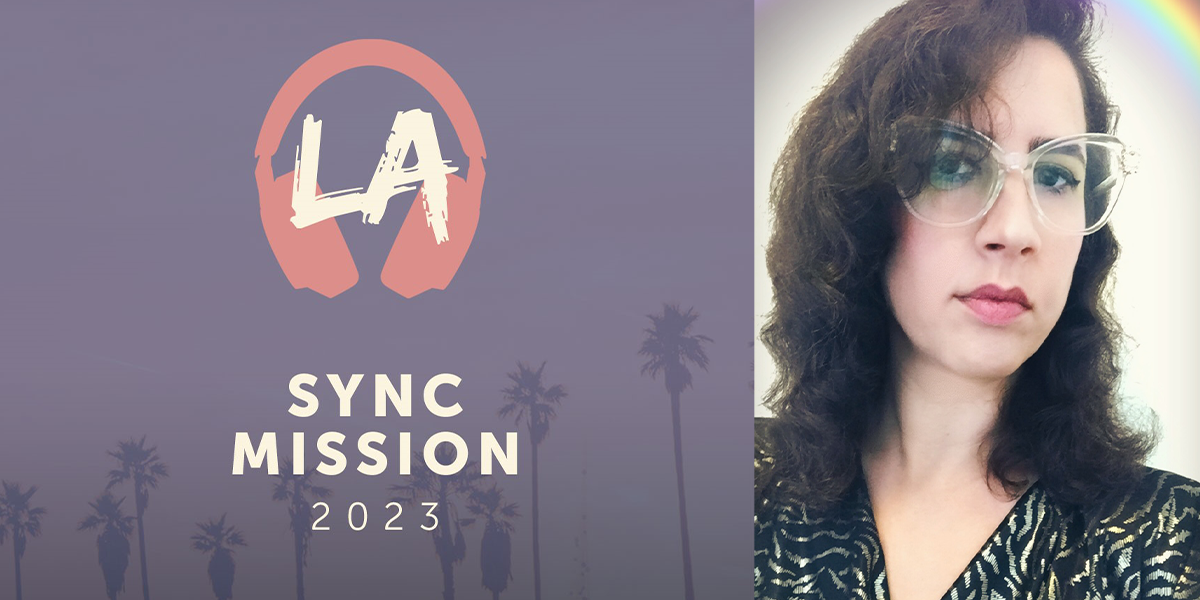The 2023 LA Sync Mission kicks off next week where over 50 UK record label and music publishing executives will gain a unique insight into the most lucrative sync licensing market in the US.
Ahead of the mission, Founder of Sweet on Top and Sync mission panelist, Kristina Benson, shared ‘An Introduction to Sync’ – answering what is sync, how might artists get their music placed in media, and why sync is important for the music industry.
Hello! I’m Kristina Benson, founder of Sweet On Top, LLC, - a sync licensing agency, publisher, and custom music house. We have a large vintage catalog, a number of up-and-coming artists, and a small crew of composers and writers to help us fulfill custom music orders from a few select clients. We've placed music in ads for brands like Mazda, Grey Goose, Simple Mills, Michael Kors, and Coach. We've also placed music in trailers for video games including, Forza, feature films and TV series’ including Riverdale, All Rise, What We Do in the Shadows, Chucky and The Rookie.
What is sync?
Sync is short for "synchronization". It refers to the use of recorded music in timed synchronization with a moving picture. In other words, when you watch a piece of media, be it film, TV, a tik tok video, or a promo, if there is music that is playing along with the video, you are watching a motion picture that is accompanied by music in timed synchronization.
How would an artist get their music placed in media?
There are so many paths to getting a sync licensing placement. A manager friend of mine likes to say that if you want to get a sync, make a song that a lot of people really like! And there is a lot of truth to that. For an artist like Doja Cat or Harry Styles, sync is a lagging indicator. They release a song, it climbs the charts, and then sync licensing placements follow. For emerging artists, however, the path looks a bit different. Usually, an emerging artist will benefit from working with third parties to assist them with sync licensing: a label, a publisher, or a licensing agency. Or all three. These third parties can help raise their profile and put them in front of the people who are making decisions around sync licensing.
Why is sync important for the music industry?
There are many paths to success in the music industry, financial and otherwise, and sync is one of them. A sync licensing placement can be a financial windfall for an emerging artist or indie record label. And it can attract a new generation of fans to an older catalog – think of the huge interest in The Cramps after Wednesday, or Kate Bush after Stranger Things. Music can also be a powerful marketing component of an advertising campaign, attracting interest in a product or even a TV series, film or a video game. It can be just as important to the film industry as the music industry in that respect, given its efficacy as a marketing tool. So while it's true that sync can drive streams to a new or catalogue artist, it's also the case that sync can build on existing success.




